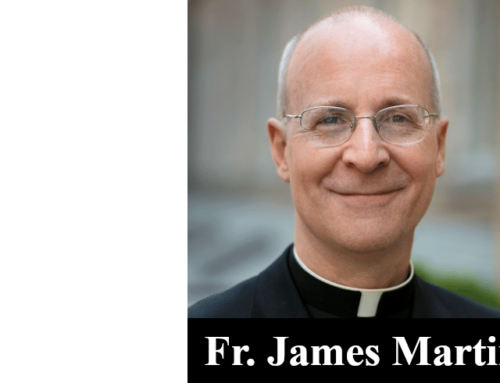Catholic League president Bill Donohue comments on a story in today’s New York Times on “Unplanned”:
In the April 9 edition of the New York Times, there is a news story about the pro-life movie “Unplanned.” Of course, the term “pro-life” never appears—such persons are described as “being against abortion rights.” The words are chosen carefully: those who defend human rights in utero are against human rights.
The story starts with an observation about suburban theater-goers who saw the film last week. “A few—a gaggle of nuns in their habits, at least one collared priest—wore their dispositions on their sleeves. Others communicated in muted gestures, dabbed at tears, or lingered for long stretches in the popcorn-strewn vestibule at the AMC multiplex here, as if still processing the deliberately provocative movie they had just seen.”
The Cambridge English Dictionary defines “gaggle” as “a group of geese” or “a group of noisy or silly people.” We can assume that the reporter, Reggie Ugwu, was not referring to the nuns as “a group of geese.” That would make them “a group of noisy or silly people.”
The silly nuns were in habit. That makes sense given that pro-abortion nuns—I have met more than a few of them—tend to dress like social workers. The priest with a collar (note: even liberal priests wear a collar when they go on TV) was, like the silly nuns, making a statement with his garb, clearly wearing his “dispositions on his sleeve.”
It is true that when people witness a movie about the wanton destruction of babies they tend to well up. Either that or they are sociopaths. And yes, there is much to process about a movie that is “deliberately provocative.” Films that honestly depict bodily invasions tend to be that way.
“Unplanned,” as many know, has been subject to considerable Hollywood censorship. Ugwu accurately recounts how requests for songs to be used in the movie were denied, as were most TV interviews. The film was slapped with an “R” rating, a deliberate act, and the movie’s Twitter account was temporarily disabled. When it comes to explaining why these things happened, Ugwu wears his dispositions on his sleeve.
“Of course, no film is entitled to media exposure.” That’s true. The same could be said about the failure of the New York Times to review the movie—like virtually every other major newspaper in the nation (the Washington Post being the lone exception)—but that doesn’t empty the discussion. Why the blackout?
Ugwu anticipates this question and has a ready answer. He opines that “the belief among anti-abortion communities that powerful forces have arrayed against the film has kindled long-smoldering claims of liberal and anti-religious bias in the media and Silicon Valley.”
That Hollywood and the Silicon Valley are liberal and anti-religious is about as controversial as saying the Bible Belt is conservative and religious. Only liars or the ignorant would deny it. They are also intolerant and censorial.
Ugwu notes in a parenthetical remark that Planned Parenthood released a statement saying the movie “promotes many falsehoods.” I checked the full statement, which is three sentences long, and it does not provide a single example of a falsehood. Surely they could cite one.
In the movie, there is an ultrasound picture of the baby flinching when pierced by the abortionist. This scene has upset a lot of people: some are upset at the violence and others are upset because their argument implodes.
Ugwu says that this scene “shows a fetus with a discernible head, torso and limbs frantically squirming away from a doctor’s probe…before being liquefied by suction.” So there is a body other than that of the mother’s. And it moves. Temporarily that is.
He asked a doctor at the “nonpartisan American College of Obstetricians and Gynecologists” about this scene and she said that the notion that the baby is “fighting for its life” is misleading; babies at 13 weeks cannot feel pain, she said.
There are two problems here. First of all, there is nothing “nonpartisan” about this woman—she performs abortions. Second, according to a study published in 2013 in the Journal of Maternal-Fetal Neonatal Medicine, “As early as 8 weeks the baby exhibits reflex movement during invasive procedures.”
So the question I have for Mr. Ugwu and his “nonpartisan” abortionist friend is, “If the baby cannot feel pain, why does he or she recoil when pierced?” Don’t adults recoil when pierced by a dentist?
I could not help but notice that in the same edition of the newspaper there is an article about a change of leadership at The Nation magazine. It noted that the far-left publication was founded by abolitionists in 1865. What it didn’t mention is that it strongly defended, and lied about, the mass murders committed by Stalin and Mao. If a magazine defended, and lied about, Hitler, it would surely be noted.
Abortion and communism have much in common: both are stories about the killing of innocents. And in both stories, the paper covered them up. This is what makes the New York Times tick.
Contact Meeta Agrawal, arts and leisure editor: meeta.agrawal@nytimes.com







